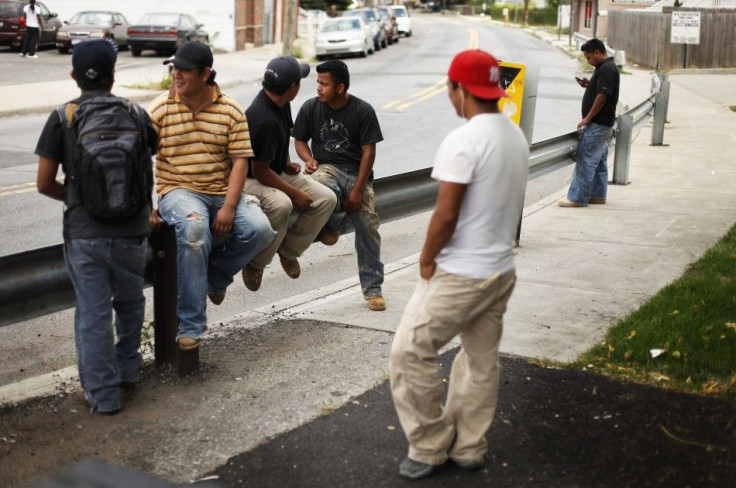Path To Citizenship Stressed In Bipartisan Immigration Proposal: What The Plan Includes

A U.S. immigration reform plan proposed by a group of bipartisan U.S. senators includes a detailed path to citizenship for undocumented individuals who are already in the country, part of a framework of principles to rewrite the nation’s immigration laws.
The deal, which will officially be announced at a Monday news conference, could represent the start of what would be the most substantial effort in years to overhaul the United States’ inefficient immigration system.
President Barack Obama has said the passage of comprehensive immigration legislation is one of his top goals for his second term. The White House will reportedly release its own counter proposal on Tuesday.
The broad agreement has been backed by the so-called “Gang of Eight” senators: Republicans John McCain (Ariz.), Lindsay Graham (S.C.), Marco Rubio (Fla.) and Jeff Flake (Ariz.), as well as Democrats Charles Schumer (N.Y.), Richard Durbin (Ill.), Robert Menendez (N.J.) and Michael Bennet (Colo.).
The plan, according to a statement of principles obtained by The Washington Post, would focus on the following:
More, Stronger Border Control
Strengthening U.S. borders to reduce the flow of illegal immigration is the first step that must be taken. In fact, the framework for the bipartisan plan states that its additional proposals, such as providing a path to citizenship, is all “contingent” upon the government’s success in securing the border and addressing visa overstays.
The Border Patrol will also receive “the latest technology, infrastructure and personnel needed to prevent, detect and apprehend every unauthorized entrant.” The legislation would also increase the number of unmanned aerial vehicles that patrol the border between the points of entry.
In 2012, the number of Mexican immigrants living illegally in the U.S. decreased for the first time in decades, the Pew Hispanic Center reported. The decline was credited to the sluggish U.S. economy, as well as heightened violence along the border.
Create 'Tough But Fair' Path To Citizenship For Illegals
The “tough but fair” roadmap to citizenship would grant temporary legal status to illegal immigrants who pass background checks, pay fines and back taxes. Those who demonstrate an effort to learn English and have a history of employment within the country will be preferred, but would only receive a green card after other lawful applicants had gone through the process.
Agricultural workers will reportedly go through a different, and as of now unspecified, process for citizenship due to the “utmost importance in our nation maintaining the safety of its food supply.”
The proposal does not include a version of Obama’s DREAM Act, which would offer permanent residency to undocumented immigrants who were brought to the country as children, and graduated from a U.S. high school. Instead, it simply says “those individuals will not face the same requirements as other individuals” when seeking citizenship.
Increasing Immigration Rate Of Skilled Workers
Revamping the legal immigration system, by focusing on the applicants with demonstrated skills that could strengthen the U.S. economy, is absolutely necessary, according to the proposal. The plan would award green cards to immigrants who have received a Ph.D. or a Master’s Degree in science, technology, engineering or math from an American university.
In addition the new system would make it more difficult for legal immigrants to obtain family and employment visas, “so that future immigrants view our future legal immigration system as the exclusive means for entry into the United States.”
Businesses would be able to hire legal guest workers to fill lower-skilled positions – particularly for agricultural work -- if they cannot find American applicants. The number of workers permitted would fluctuate with the state of the economy.
Relying On Employment Verification Programs
The federal government should give employers access to a verification program such as E-Verify to help them determine whether new hires are legally authorized to work in the U.S. Employers who knowingly hire unauthorized workers would face monetary fines and criminal penalties.
© Copyright IBTimes 2024. All rights reserved.




















